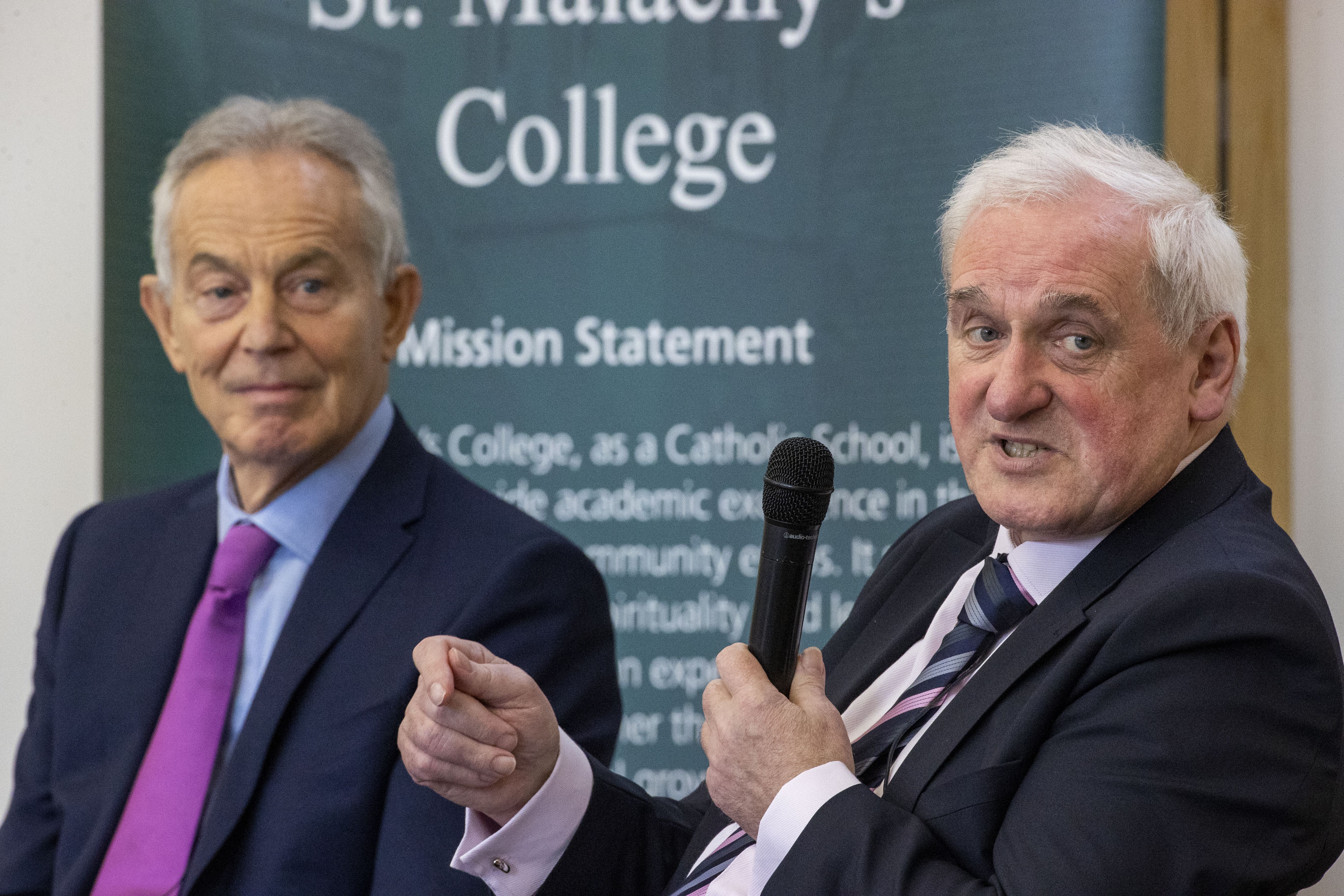Release of paramilitary prisoners in 1998 ‘horrible but necessary’ – Tony Blair
Former taoiseach Bertie Ahern said the Good Friday Agreement would never have been signed without the decision to release prisoners.

Your support helps us to tell the story
From reproductive rights to climate change to Big Tech, The Independent is on the ground when the story is developing. Whether it's investigating the financials of Elon Musk's pro-Trump PAC or producing our latest documentary, 'The A Word', which shines a light on the American women fighting for reproductive rights, we know how important it is to parse out the facts from the messaging.
At such a critical moment in US history, we need reporters on the ground. Your donation allows us to keep sending journalists to speak to both sides of the story.
The Independent is trusted by Americans across the entire political spectrum. And unlike many other quality news outlets, we choose not to lock Americans out of our reporting and analysis with paywalls. We believe quality journalism should be available to everyone, paid for by those who can afford it.
Your support makes all the difference.The release of paramilitary prisoners as part of the Good Friday Agreement was “horrible, but necessary”, Sir Tony Blair has said.
Former taoiseach Bertie Ahern added that if the decision had not been taken in 1998, there would never have been a peace deal in Northern Ireland.
The two leaders, who signed the historic agreement, were addressing a group of school pupils in Belfast.
They were asked about the decision to release paramilitary prisoners, one of the most controversial aspects of the deal.
Sir Tony said: “It was horrible, but necessary is my answer.
“What I found was that the most difficult conversations I ever had were with the families of the victims.
“They always divided into two categories of people. There were people who literally found it unforgiveable, that you released the people who murdered their loved ones.
“Many of these people were killed just by being in the wrong place at the wrong time, it wasn’t that they were targets.
We weren't indifferent to it but what we were trying to think is how do we prevent this happening in the future
“Some people found it unforgivable while what other people said was, ‘I can’t ever forget what has happened but if you can tell me that your agreement will mean that someone else doesn’t suffer in the way that I’ve suffered, then you go and do it’.
“But you’ve got to make sure it lasts and it works.”
The former prime minister added: “A lot of people are cynical about politics because they don’t understand when you actually are in a position of political leadership, if the decisions were easy, life would be so much simpler.
“But they are not. It is really difficult.
“In the end, you’ve got to take a decision, and the moment you decide, you will divide.
“That’s what leadership is about.
“We weren’t indifferent to it but what we were trying to think is how do we prevent this happening in the future.
“Ultimately, if you want to make change you are going to have to do things which are difficult and sometimes take risks, it can be a very ugly business when you are dealing with the families who have lost their loved ones in terrible acts of violence, that is the most difficult thing.
“But if you are going to be honest about what the future has to look like, you are going to have to take those decisions.”
Mr Ahern said there were a number of parts of the agreement that they didn’t “feel great about”.
He added: “If we didn’t do it we wouldn’t have had an agreement, that is the straight and honest answer.
“I don’t ever remember Tony Blair opening a champagne bottle to say to me, ‘let’s have a drink, we’re going to release the prisoners’.
“It was a huge decision and I didn’t have nearly as many prisoners.
“But I remember having to go back and meet some of the families of members of the Garda Siochana, the Irish police force, and tell them I am going to release these guys who got 40 years for killing your dad, but they have only served six or seven.”
Mr Ahern said: “It was something that was necessary like a lot of the hard compromises.
“I can tell you we weren’t celebrating, but as part of the overall collective issues that we were dealing with, which were huge – that was one of the difficult ones.”